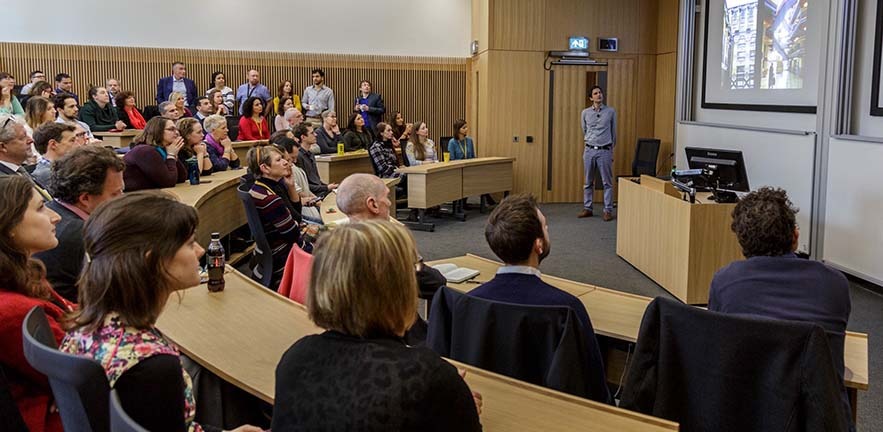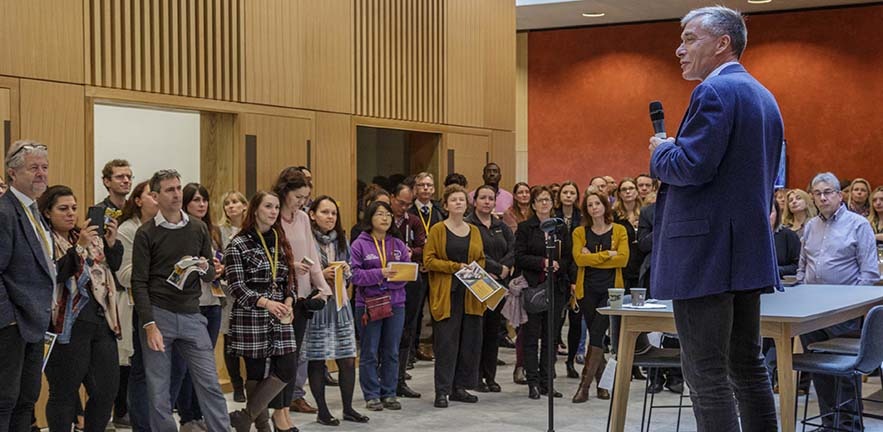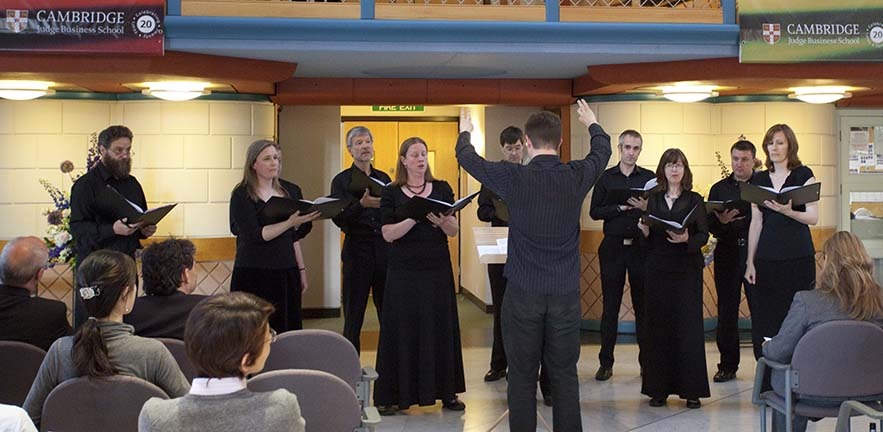Overview
We develop and deliver tailor-made sessions on leadership, teams and organisational effectiveness.
All our programmes take into account technological change, such as artificial intelligence and machine learning, and prepare the participants for the future of work.

Upcoming programmes
People and Organisational Effectiveness
Format:
Dates:
Duration:
Fees:
Face-to-face
14-16 Jul 2025
3 days
£4,550 + VAT
Face-to-face
13-15 Oct 2025
3 days
£4,550 + VAT
Format:
Face-to-face
Dates:
14-16 Jul 2025
Duration:
3 days
Fees:
£4,550 + VAT
Format:
Face-to-face
Dates:
13-15 Oct 2025
Duration:
3 days
Fees:
£4,550 + VAT
A 3-day, fast-paced, practical programme. In a working environment increasingly characterised by rapid change and uncertainty and an ever-strengthening imperative for higher performance, leaders and managers know they have to get the best from their employees and the best from themselves in order to develop an effective workplace.
This programme looks at how leaders and managers can increase the effectiveness of their team and their organisation through enhancing the attraction, motivation, development and retention of their employees.
We look at the approaches, mechanisms and practices that increase performance and commitment and build alignment with the strategic objectives of the organisation.
The programme also draws on latest research from leading organisations showing both current practice and innovative approaches to provide insights into how to increase organisational and team effectiveness.
Creating High Performance Teams: The New Realities
Format:
Dates:
Duration:
Fees:
Face-to-face
21-22 Oct 2025
2 days
£3,600 + VAT
Live Online
9-12 Dec 2025
4 x 0.5 days
£2,250 + VAT
Format:
Face-to-face
Dates:
21-22 Oct 2025
Duration:
2 days
Fees:
£3,600 + VAT
Format:
Live Online
Dates:
9-12 Dec 2025
Duration:
4 x 0.5 days
Fees:
£2,250 + VAT
Teams are at the heart of organisational life. Their effectiveness strongly influences the success of the enterprise overall. Striving for, and achieving, high performance in teams has therefore become a major business imperative. But bringing together individuals into a group and making them a cohesive and productive team is far from straightforward.
The mix of differing personalities, skills, motivations, career aspirations, and leadership styles of individuals, as well as the complexities of the task and the process, means that building and shaping high performance teams is fraught with difficulty. We will explore the key elements of a high-performance team, drawing on examples from corporations, not-for-profits, consultancies and sports teams, among others. We shall look at the major areas of team roles and responsibilities, team dynamics, and team outcomes. We will look at the different kinds of people required to make a high-performance team and the important elements in ensuring the dynamics of the team bring high performance. Dealing with conflict in teams and how to cope with difficult team members will also feature in the sessions.
Tailor-made sessions
2 December 2021
Pradeep delivered a masterclass for the Strategic Technology and Innovation Management consortium led by the IfM Engage at the University of Cambridge with international industry participants. The session helped bridge the Innovation and R&D practices with the firm’s strategic and financial aims which would help place the innovation function in a strategic perspective. The session also reviewed novel assessment of strategic and innovation challenges as AI becomes a key theme for survival and competition across the industries.
9 November 2021
Philip conducted a team workshop with current and aspiring Clinical Directors from Addenbrooke’s on the subject of teams and team working. This was part of the Leading for Excellence programme. The programme supports participants to become effective healthcare leaders in a rapidly changing and challenging environment. The programme enables senior clinical leaders to deliver high quality, safe and compassionate care whilst balancing a complex range of strategic, operational and clinical responsibilities.
7 November 2021
Philip gave a session on leadership at the Law Firm Partner as Leader programme. This programme is designed to explore the competitive pressures on law firm partners in Europe and how these may best be dealt with. Key questions include:
- how can you differentiate and grow your practice?
- how can you nurture and develop your associate?
This programme has been specifically designed for law firm partners who recognise that, for the firm to be more competitive and successful, you have to be equipped with the insights, skills and techniques that will help you meet the demands of today’s partner role and make you a more effective leader at both firm and practice level. Focusing on leadership and managing people, Philip and participants discussed the leadership issues particular to law firm structures and the approaches partners can take to increase motivation and commitment of peers and associates.
20-26 October 2021
Philip is the Academic Programme Director for the Natural Allies programme, a major initiative in collaboration with Cambridge Judge Executive Education and the Wilson Trust. The programme centres on the need to hear the voices of members of governments, business and ENGOs to develop insights and strategies into how best to collaborate with one another to deliver solutions to the issues of sustainability.
The ethos is that to deliver environmental gains, there needs to be a collaboration between three major constituencies – the public sector, private sector and third sector. We believe it is essential that leaders and decision-makers from government, industry and NGOs across the world have the opportunity to talk, exchange ideas and ways of working in order to collaborate better to solve the critical environmental challenges that we currently face. In the programme, we had 36 delegates from major environmental non-governmental organisations from the USA and the UK to talk through issues with representatives from business and government. The 5-day experience brought rich discussion and insights, and was particularly timely, just prior to the COP26 event in Glasgow.



